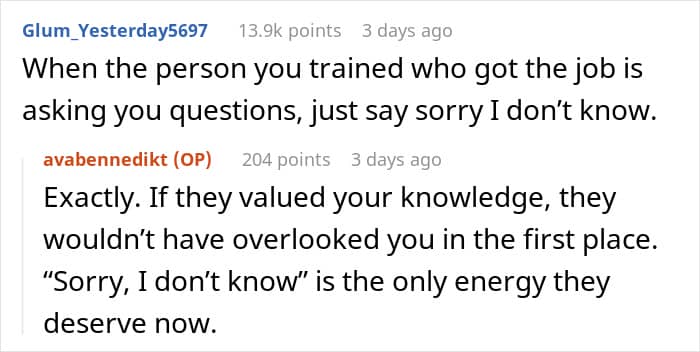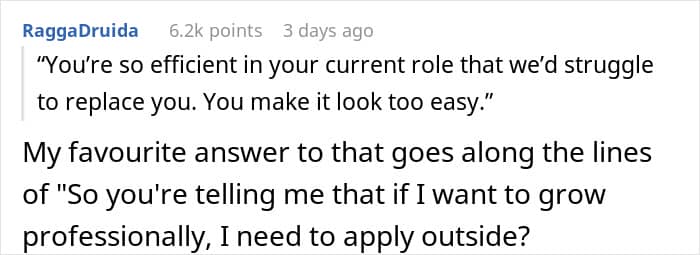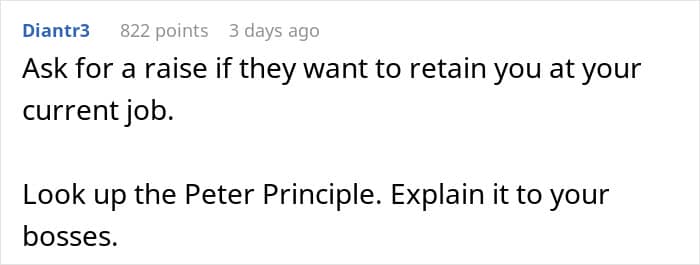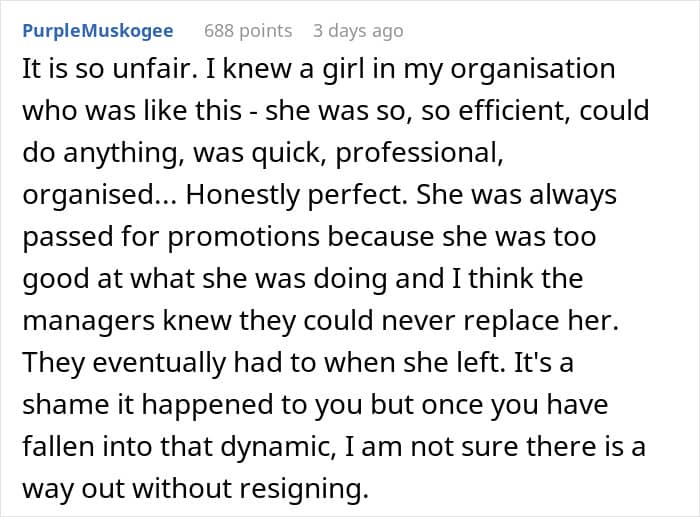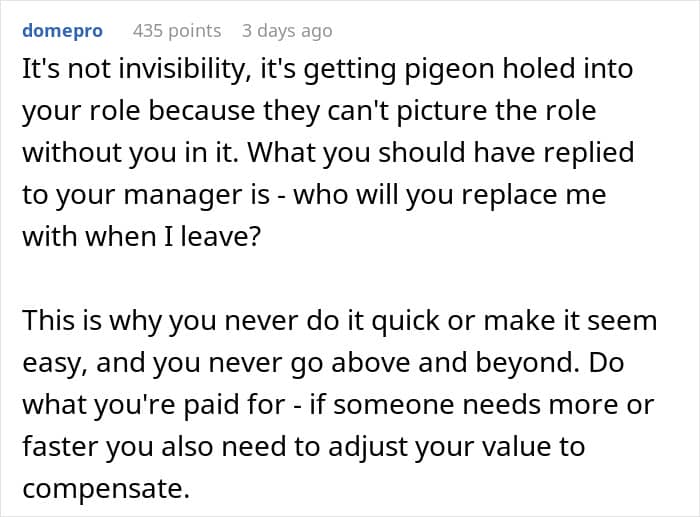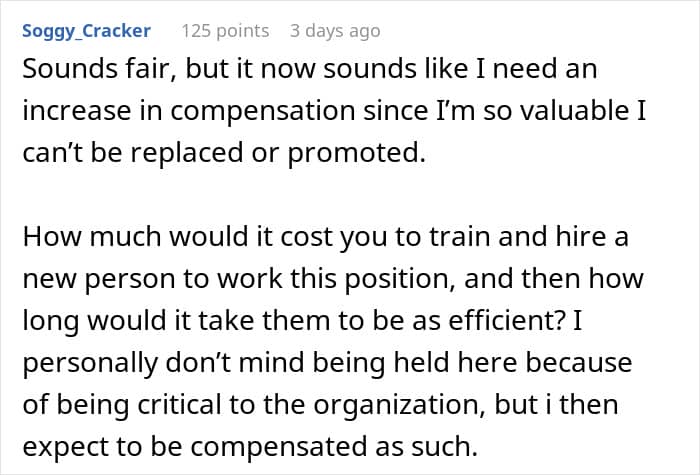For most people, landing a promotion isn’t easy. You obviously have to be a high performer, but there are all sorts of other things that play into it too, like office politics, budgets, and even time of year.
One woman who’s been working at a city records office for 4 years thought she’d apply for a more senior role when it came up. Much to her disappointment, she didn’t get the job and has now turned to an online community to explain exactly why.
More info: Reddit
RELATED:Being good at your job doesn’t guarantee a promotion, as this woman found out much to her chagrin

When a more senior position opened up, she thought she’d apply for it, banking on her stellar track record to deservedly land her the role
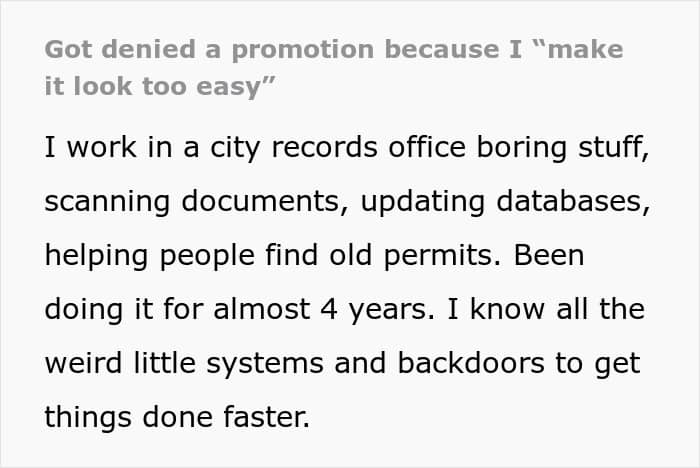
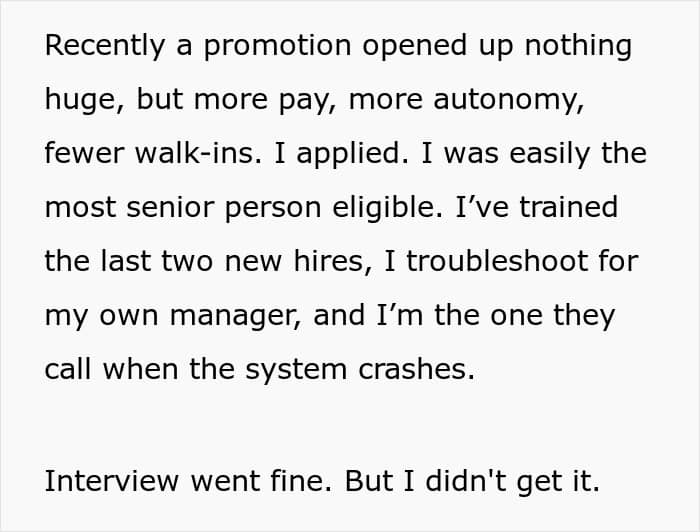

Even though she says the interview went fine, she didn’t end up snagging the sought-after role
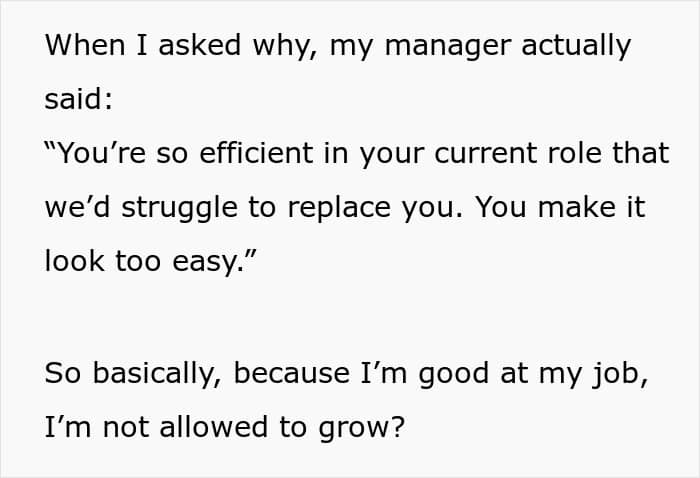


When she asked her boss why, he told her she’s so good at her current job the company would struggle to find a replacement for her
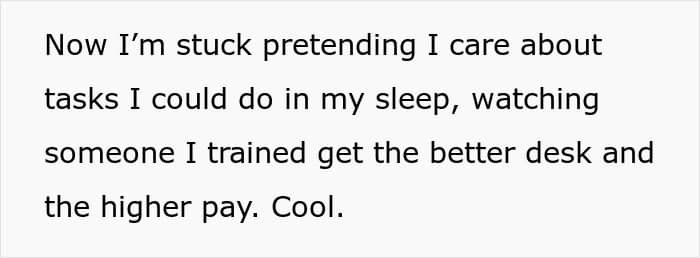
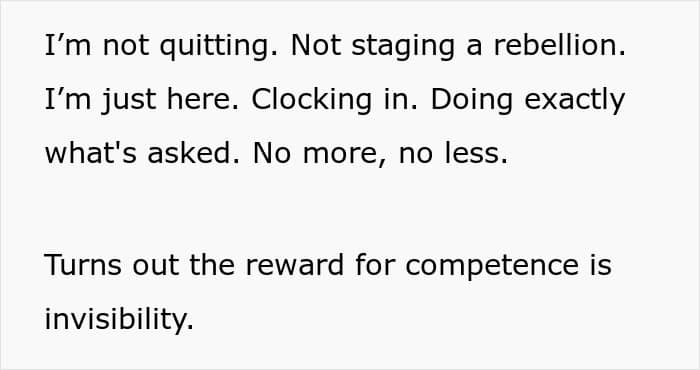
Infuriated, she’s decided to quiet quit, and went online to share her story with netizens
For nearly four years, OP, a city records clerk, mastered the art of quiet efficiency – scanning docs, updating databases, and fixing problems faster than anyone. She knew the systems inside-out, trained new hires, and even bailed out her own manager during tech meltdowns. So, when a promotion opened up, she thought it was a sure thing.
The interview went fine. Experience? Check. Skills? Check. However, OP didn’t land the job. When she asked why, her manager gave her a frankly jaw-dropping answer: “You’re so efficient in your current role that we’d struggle to replace you.” Translation? You’re too good to grow.
To make matters worse, the job went to someone who joined the company just six months ago. Someone OP had trained. Now she’s stuck doing autopilot tasks while her former trainee gets the better desk, the better title, and the better pay. Honestly, it’s a masterclass in how loyalty and skill can sometimes backfire – hard.
OP’s response? No dramatic exit. No desk-flipping rage. Just quiet quitting in its purest form: clocking in, doing exactly what’s required, and nothing more. As she puts it, “Turns out the reward for competence is invisibility.”, so who can really blame her?
From what she tells us in her post, OP is a victim of outperforming her role. As more and more employees feel let down by management, people like her are engaging in the workplace phenomenon known as quiet quitting. So, just what is it? And what do you need to know about it? We went looking for answers.

In her article for TechTarget, Amanda Hetler writes that quiet quitting is the latest workplace buzzword. According to Hetler, although it sounds like it refers to someone resigning from their position, it actually describes a rebellion against the hustle culture of going above and beyond what a job requires.
Employees engaged in quiet quitting are still fulfilling their tasks, they’re just not subscribing to the ‘work is life’ culture to guide their career and stand out to their superiors. They stick to what’s in their job description and, when they go home, they leave work behind them and focus on non-work duties and activities.
According to the Personio website, quiet quitting has been a hot topic on TikTok and in the traditional media, which suggests that it’s probably real. However, it’s difficult to estimate exactly just how widespread it is.
Gallup reports that quiet quitters have a lot in common with employees who are “not engaged”: while they may not be actively disengaged, they’re mentally detached from work, and they’re definitely not working to the best of their capabilities.
OP’s boss probably shot himself in the foot by rejecting her attempt at a promotion. After all, now he’ll never know how her work ethic would’ve translated to a more senior position, and that could end up costing the company in the long run.

Wereached out to Liz Ryan, author, CEO, and founder of Human Workplace to get her opinion on OP’s situation. We asked her whether being highly competent is actually a risk in some workplaces, and if so, how do companies justify sidelining their best performers?
She had this to say, “It’s fun to learn a job and get good at it – but there are major downsides to being too competent. For starters, if you exceed your targets execs will expect your manager to get your teammates to the same level.
Ryan says your boss isn’t likely to appreciate that pressure and that being a superstar typically gets you more work, more responsibility and no extra pay or recognition.
“The corporate ladder is gone. It’s sawdust under our feet, so firms plan on top performers leaving when they’re tired of being overworked and overlooked. That’s why you have watch the talent market all the time – and stay ready to jump when the next opportunity comes.” concluded Ryan.
What would you have done if you’d found yourself in OP’s shoes? Would you be content to quiet quit like she did, or would you have resigned on the spot? Let us know your opinion in the comments!
In the comments, readers agreed that the whole situation was completely unfair and that the woman should ask her boss for a raise to keep doing her current job
